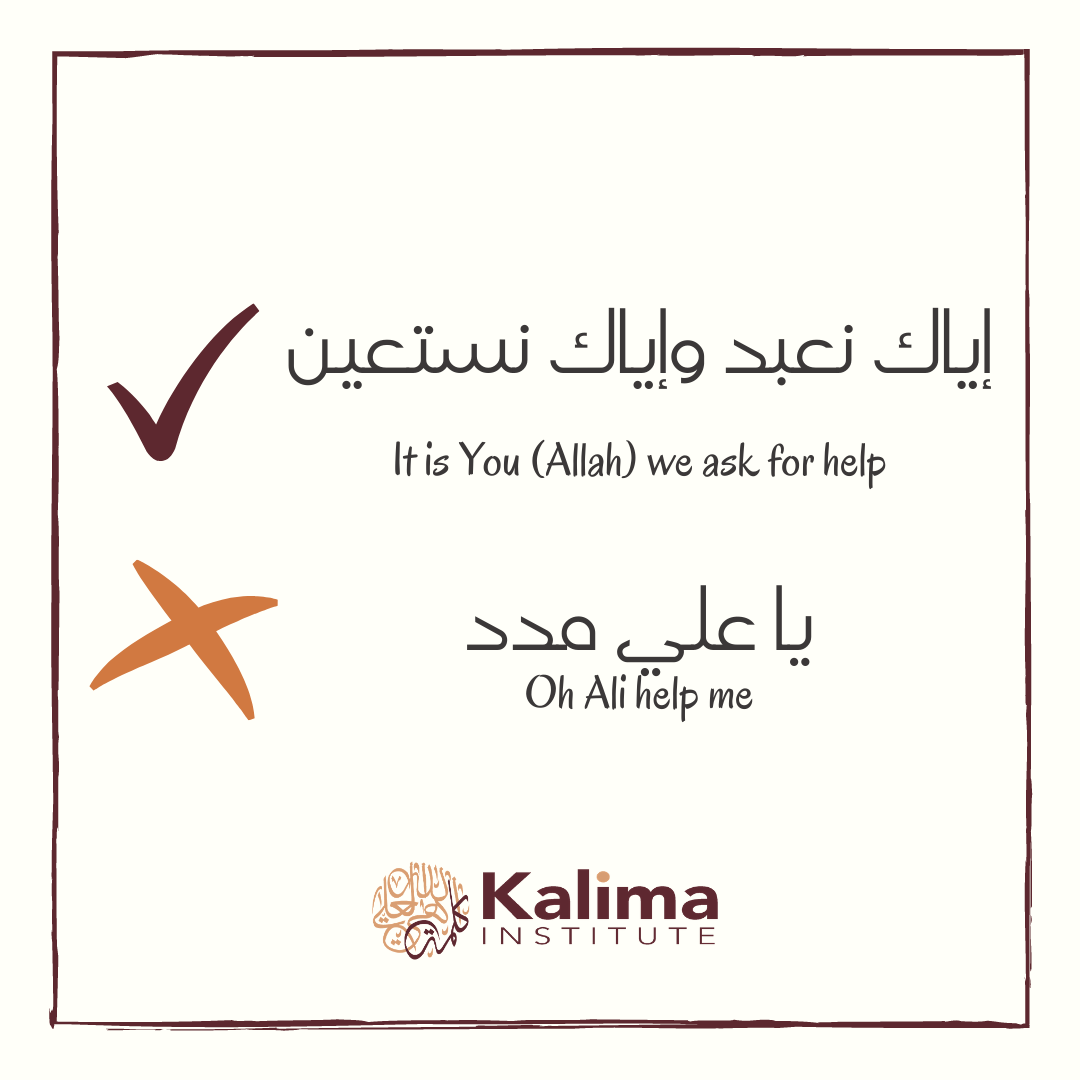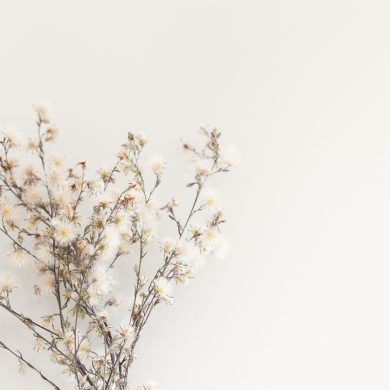At least ten times a day in our daily prayers, speaking to Allah (swt) we must say the following from Surah al-Fātiha (1:5):
إِيَّاكَ نَعْبُدُ وَإِيَّاكَ نَسْتَعِينُ
It is You we worship and You we ask for help.
We first bear witness that we worship Allah alone, which means our primary task is to be His slaves and submit to Him. The second part relates to seeking His aid. These two statements define for us what pure worship in Islam really means, which is, asking Allah alone for help.
Further, in Arabic, when words are brought forward it is for the purpose of emphasis. إِيَّاكَ is not only brought forward but is also an exaggerated form of ‘you’ and thus brings the meaning of ‘only You, no one else’.
We may only think of shirk as bowing to physical idols, however, there is another kind of shirk called unapparent shirk (الشرك الخفي). This is when a person says they believe in Allah as One God but this tawhīd is not reflected in their actions. One example we may come across is Muslims calling upon human beings in statements such as Ya Ali Madad (Oh Ali help me).
Islamic scholar Sayyed Fadlallah states1:
“We should never call upon the Prophets and Imams saying things like: “Oh Allah, Oh Muhammad”. Yes, we can ask for their intercession from Allah due to their closeness to Him, but we do not call upon them like we call upon Allah. We praise the Ahlulbayt for their submission to Allah and so we must always keep it clear that in Prophet Muhammad, Imam Ali and the other Imams, there is no part of Godliness (الوهية)”.
Our lips 10 times a day during salah are saying it is You alone we ask for help and yet those very same lips will utter things like “Ya Ali madad” or “Ya Mahdi adrikna”.
So let us ask ourselves a question: is our salah merely lip service that has become just a routine? What is the point of our prayers if they do not translate into actions and if we do not ponder on the meanings of the words?
As Muslims, by definition, we must call upon Allah (swt) alone:
72:18 – وَأَنَّ الْمَسَاجِدَ لِلَّهِ فَلَا تَدْعُوا مَعَ اللَّهِ أَحَدًا
And [He revealed] that the masjids are for Allah, so do not invoke (call for help) with Allah anyone.
When you speak to Allah, do not associate others with Him because everyone other than Allah is the slave of Allah. No one has the ownership of the universe or the ability to answer your prayers apart from Him.
Moreover, we say in the tashahhūd in our salah: “I bear witness that Muhammad is His slave (عبده) and His messenger”. The greatness of Muhammad and his household lies in their submission to Allah. Imam Ali, with his immense virtues, stands before his Lord saying in Dua Kumayl:
أنا عبدك الحقير الذليل المسكين المستكين
I am your slave, the weak, the despicable, the poor, the humiliated.
Every night during Ramadan we also recite in duʿāʾ al-ʾIftitāḥ:
O Allah, send blessings on Ali, the Commander of the Believers… Your slave, Your beloved representative, and the brother of Your Messenger
This pure submission to Allah itself is the key to attaining the highest status of a believer!
If we would like to call ourselves followers of the Ahlulbayt, we have to do just that; follow their example. We should aim to reach their level of pure worship to Allah and not undermine tawhīd through the champions of tawhīd themselves. Ultimately, the honour and strength of the Muslim Ummah is a result of our pure monotheism, tawhīd. When we lose this, we lose everything.
Islam is the religion of tawhīd and Imam Ali is the Imam of tawhīd. So instead of Ya Ali Madad, let’s follow Ali (as) and say Ya Allah Madad.
References
1. Sayyed Muhammad Hussain Fadlallah. (1997). fi riḥāb duʿāʾ al-ʾIftitāḥ. Beirut: Dar Al-Malak, p.75.
By Naba Alsaffar





